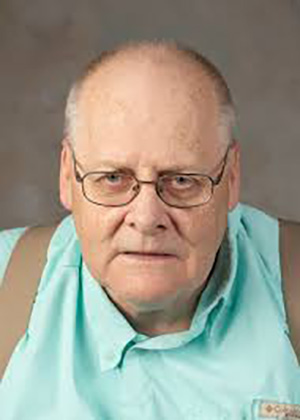By Greg Markley
Four years after I attended Jimmy Carter’s inauguration, things were changing. I graduated from college with a bachelor’s in political science (which in that economy could get you a good job with a lot of luck and abundant prayer.) After working as a security guard for nine months, I said what-the-heck why don’t I save money for two months and go to Reagan’s inauguration?
On the Amtrak train heading to the nation’s capital, I talked with fellow passengers. This was before the onslaught of personal electronic devices which have much utility but do separate people a lot. I came across a young man adorn in the Ivy League style that I was familiar with from attending lectures at Brown University, near my own college in RI.
“Are you headed to Washington for the Inauguration?” I asked. “Yes, I have never liked flying so I take the train. I am a cousin of George (Herbert Walker) Bush).” He showed me his ID from Yale for proof. We parted in DC. I reflected how nice it was for Reagan/Bush to appeal to a union electrician’s son like me, as well as a privileged young man as he was.
Reagan’s inauguration as 40th president of the United States was the first such event to be held on the West Front of the Capitol. At 69 years, 349 days of age on Inauguration Day, Reagan was the oldest person to assume the presidency until Donald Trump at 70 years, 220 days, in 2017. Next week, Joe Biden becomes the oldest, at 78 years, 61 days.
Days before the Inauguration, it was announced that the 52 hostages being held in Iran for 444 days would be released. People listened closely to their AM transistor radios and some Sony Walkman recently made available. Television did not have “split-screens” but showed alternating pictures from Tehran and Washington, DC. It was a very big-news day, indeed.
I was lucky to have been there in 1977, the most recent year in which the Capitol’s East Portico was used. Inaugurations were conducted there, with few exceptions, since 1837. In 1980, a congressional committee decided to head west for cost-cutting, as the West Front terraces could be used as a platform, so a new one did not need always to be built.
Parade Magazine, two days before the inauguration called Reagan’s moving the ceremonies “an important symbol for a man who sought to change direction and for a nation that always looked to the West for opportunity.” I heard statements like those at the 1st Reagan Inaugural; it’s good to know the committee was respected but that Reagan started the tradition with the new vista as he was a man of the West.
After reciting the Oath, Reagan gave his speech. He was loudly cheered with this: “In this present crisis, government is not the solution to our problem; government is the problem.” He laid down a marker for foreign affairs: “As for the enemies of freedom, those who are potential adversaries, they will be reminded that peace is the highest aspiration of the American people. We will negotiate for it, sacrifice for it; we will not surrender for it, now or ever.”
After the ceremony, the new President was told that the plane carrying the 52 hostages had left Iranian airspace. In a rarity, the press had held off on the announcement because it was a challenge to discuss this delightful news and the unfolding ceremony at the same time. Today people would have learned about the Germany-bound hostages’ plane’s departure already.
I still have a photo of the Reagans, with First Lady Nancy in a red dress with a red hat. I photographed her from the high steps of the U.S. Department of Agriculture. Security was extensive, with city and state police, Secret Service, and military guards. This predated the Sept. 11 terrorist attacks by almost 20 years.
In December 2008, the United States Capitol Visitor Center (CVC) officially opened. It has a large underground addition to the Capitol Complex serving as a meet-up point for as many as 4,000 tourists. That is a sign of the times, of needed protections, but a less formal visit I made in December 1993 was more fun.
With today’s polarization, it is mostly supporters of the incoming president who view Inauguration broadcasts. But all Americans, from losing parties to non-voters, should pay attention to our grand 4-year ritual. Ex-presidents have wistfully looked back and figured their Inauguration Day was the best day of their term.
“Mandates are rarely won on election night,” contends Ron Fournier, a top political writer. “They are earned after Inauguration Day by leaders who spend their political capital wisely, taking advantage of events without overreaching.” The man I saw sworn-in in 1977, named Carter, did not appreciate that much. The new man in 1981, named Reagan, took that theme to heart. The rest is history.
Greg Markley has lived in Lee County for 21 years, on and off. He has Masters’ in education and history. He taught politics as an adjunct inn Georgia and Alabama. He was U.S. Army Europe for his articles from Croatia, Germany, and Macedonia.

